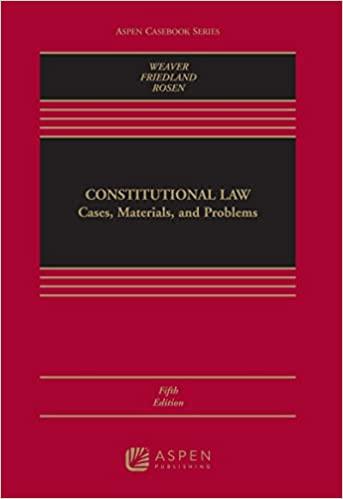Question
Yu Fang Tan v. Arnel Management Co. 170 Cal. App. 4th 1087, 88 Cal. Rptr. 3d 754 (2009) FACTS: Arnel Management Company (Defendant) managed the
Yu Fang Tan v. Arnel Management Co. 170 Cal. App. 4th 1087, 88 Cal. Rptr. 3d 754 (2009)
FACTS: Arnel Management Company (Defendant) managed the Pheasant Ridge Apartments, a 620-unit, multi-building apartment complex, with over 1,000 residents, situated on 20.59 acres in Rowland Heights, California. Before the gated entrance to the complex are two parking lots, one is a visitor lot, and the other is the parking lot for the leasing office, located on the other side of the road. There are two security gates just past the parking lot. The gates are remote-control operated. Most of the property's parking spaces lie behind these gates by the apartments.
Yu Fang Tang, his wife and their child (Plaintiffs) moved into Pheasant Ridge and received one assigned parking space. Tenants could pay an additional fee for a garage, but Tang chose not to rent one. Tenants with a second car could park in unassigned parking spaces located throughout the complex, or in one of the two lots described as long as the car was removed from the leasing office lot before 7:00 a.m.
At around 11:30 p.m. on one night, Tang returned home and tried to find an unassigned open parking space because his wife had parked the family's other car in their assigned space. Unable to locate an available space, he parked in the leasing office parking lot outside the gated area.
As Tang was parking his car, an unidentified man approached him and asked for help. When Tang opened his window, the man pointed a gun and told him to get out of the car because the man wanted it. Plaintiff responded, "Okay. Let me park my car first." But, the car rolled a little, at which point, the assailant shot Tang in the neck. The incident rendered Tang a quadriplegic. Tang filed suit against Arnel for their negligent management of the complex as well as its policy on not having sufficient parking inside the gated area and charging more for such additional spaces.
Question
Do you think a landlord/owner (such as the one here) should be liable for the injuries caused by the criminal conduct of third parties on the premises? If so, why? If not, why not? If it depends, what does it depend upon? Would it matter if other similar instances of criminal conduct had occurred before? If so, how? What do you think and why?
Step by Step Solution
There are 3 Steps involved in it
Step: 1

Get Instant Access to Expert-Tailored Solutions
See step-by-step solutions with expert insights and AI powered tools for academic success
Step: 2

Step: 3

Ace Your Homework with AI
Get the answers you need in no time with our AI-driven, step-by-step assistance
Get Started


